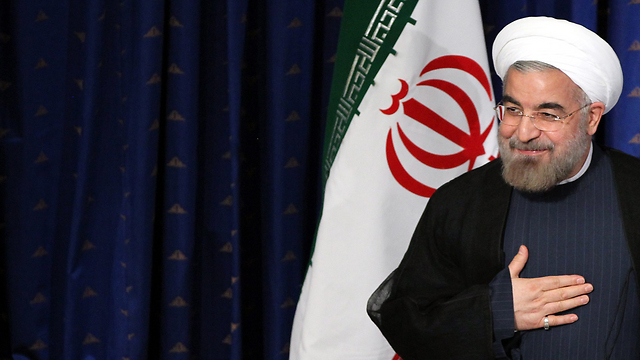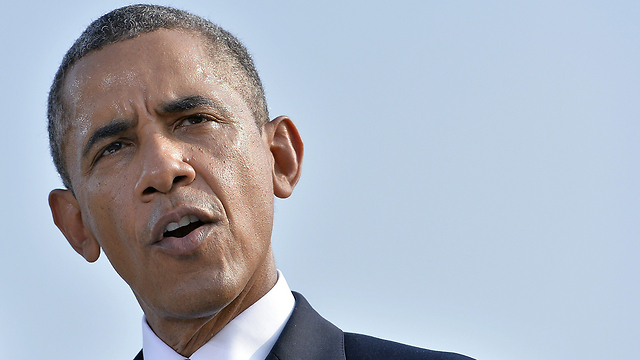Prime Minister Benjamin Netanyahu will meet US President Barack Obama in Washington on Sept 30, it has been confirmed Tuesday.
The meeting would be incorporated in the Israeli leader's scheduled attendance at the annual United Nations General Assembly in New York.
Related stories:
- Report: Rohani will shut nuclear site for sanctions lifting
- Iran says willing to build trust with US on nuclear issue
- Obama: Tehran should not look assume US won't attack
The Syrian crisis and Iran's nuclear programme are expected to top the agenda of the planned meeting.
Netanyahu would likely address the General Assembly the day after his talks with Obama. The two leaders last met in March when Obama visited Israel.
However, Obama will not be meeting Iran's President Hassan Rohani. Nevertheless, Rohani, and Iranian Foreign Minister Mohammad Javad Zarif, may be the main attraction of the event.
In the backdrop of a potential rapprochement between Washington and Tehran, Netanyahu presented the terms he felt should be set for Iran in regards to its nuclear program.
"There are four steps," Netanyahu said. "The first is the cessation of all uranium enrichment activity, the second is the removal of uranium from Iran, the third is the closure of the Qom facility and the fourth is the halting of plutonium enrichment."
Netanyahu stressed that "only all four steps will constitute an actual halt of the nuclear endeavor. Pressure on Iran must be intensified, not withdrawn, until all four goals are achieved."
The prime minister further added, "Events in recent weeks have strengthened the assumptions under which we operate: A rogue state that develops or obtains weapons of mass destruction may use it, or better yet will eventually use it. Only a credible military threat can allow diplomacy to stop armament. Israel must maintain force so as to be able to defend itself at all times, against any threat. If I am not for myself, then who will be for me?"
UN sources said that many are "standing in line" to meet the new Iranian president and foreign minister. Rohani will meet with foreign ministers from the UN Security Council's member states and from Germany, though there is no indication on whether US Secretary of State John Kerry will attend the meeting.
FM Zarif will meet with ministers from the European Union and other European ministers who wish to meet him.
Despite efforts by Obama and Rohani to ease relations between the two countries, and although they'll both speak at the General Assembly, no meeting has been set.
White House Press Secretary Jay Carney carefully worded his statement, saying, "As of now, the president is not expected to meet his Iranian counterpart at the UN Assembly."
Speculations about a meeting began circulating after Obama said in an interview with ABC that he and Rohani were corresponding. The US is very interested in promoting talks with the Iranians directly or through the UN's Security Council, but knows that it will be a difficult negotiation.
Intelligence sources told the German newspaper Der Spiegel that Rohani was willing to shut down the nuclear facility in Fordo, if the West agreed to remove all sanctions imposed on the Islamic Republic.
In an indirect reply to the publication, Carney said, "Acts speak louder than words. We are willing to negotiate through the Security Council or through a direct dialogue, but we are clearly saying that Iran failed its commitment to the international community, and it must abandon its nuclear plan completely.
"We're willing to talk with the Rohani government with mutual respect to reach a peaceful solution," Carney said.
President Obama has said that Iran mustn't think that because the US didn't intervene in Syria, it won't operate a military intervention in Iran. Obama clarified that the nuclear issue is much more pivotal than the chemical issue.
State Department Deputy Spokeswoman Marie Harf was quotes as saying, "We believe crippling sanctions are a key part of the pressure we put on Iran."
AP, Yitzhak Benhorin and Omri Efraim contributed to this report
- Receive Ynetnews updates
directly to your desktop

















